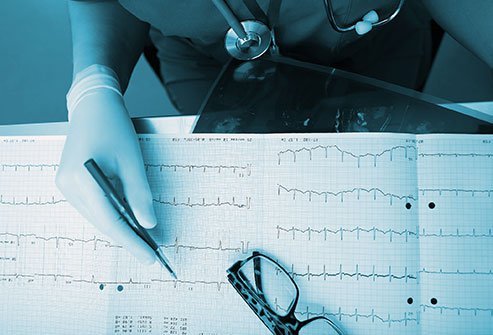Is It Normal to Have Irregular Heartbeat After Ablation?
What is a cardiac catheter ablation?

Cardiac (heart) ablation is a procedure performed to correct heart arrhythmias (irregular heart rhythm/beat). Cardiac ablation works by intentionally injuring or destroying (ablating) and scarring the tissue in the heart that triggers the abnormal heart rhythm.
The ablated parts of the heart tissue can take 6 to 8 weeks to heal completely. During this time, after the cardiac ablation procedure, patients may continue to have irregular heartbeats for which the doctor may prescribe antiarrhythmic medication.
How is cardiac ablation performed?
During cardiac ablation
The procedure is usually performed under general anesthesia or intravenous sedation. During cardiac ablation, the doctor inserts catheters (long, flexible tubes) through the vein or the artery in the groin and into the heart with the help of radiological guidance to deliver heat energy, extreme cold or laser to treat the tissues in the heart causing arrhythmias. If the patient is not anesthetized, they may feel mild chest discomfort when the catheter is in the heart to ablate the tissue. Even if the procedure is successful, patients may require repeated treatments. The procedure used to take about 10 hours to perform, but with recent advances, cardiac ablation now takes about 3 hours.
Open surgery
Cardiac ablation may sometimes be performed as open heart surgery. Open surgery is generally not preferred because it is more invasive and the time taken to perform surgery is much longer. The recovery time after open surgery is much longer as well.
After cardiac ablation
- The patient’s vitals are monitored.
- Patients may be discharged the same day after surgery or after 24 hours.
- Patients may experience chest discomfort and pain, which can be treated with painkillers.
- Antibiotics may be prescribed to prevent infection.
- Most patients can return to their normal activities in a few days after the procedure.
- It is advised to take medications as prescribed by the doctor and follow up regularly.
Lifestyle modifications
Certain lifestyle changes are advised to improve and maintain the health of the heart and overall body
- Decrease salt consumption, which can help reduce blood pressure
- Eat a healthy diet
- Get regular physical activity
- Maintain ideal body weight by staying within normal BMI limits (18.5 to 24.9)
- Avoid smoking and drinking alcohol
- Avoid recreational drugs
- Manage emotional and physical stress
What are the complications of cardiac ablation?
Cardiac ablation carries a risk of complications, including
- Bleeding
- Infection
- Damage to the blood vessels due to the catheter passing through them
- Trauma to the heart, such as a puncture
- Damage to the normal electrical system of the heart, which could worsen the arrhythmia requiring additional procedures to correct it, such as pacemaker insertion
- Injury to the heart valves
- Heart attack
- Blood clots in the veins of the legs or the lungs causing respiratory failure
- Stroke
- Damage to the kidneys due to the dye used during the procedure
- Death in rare cases

